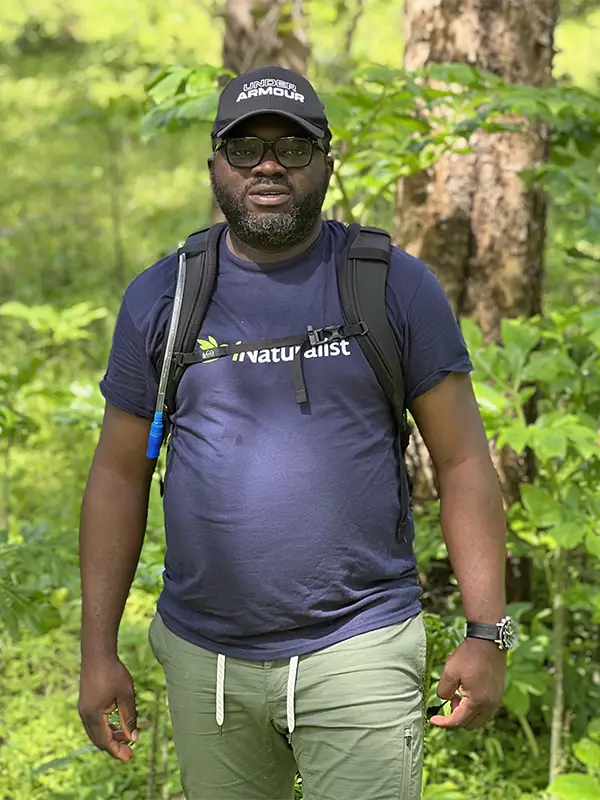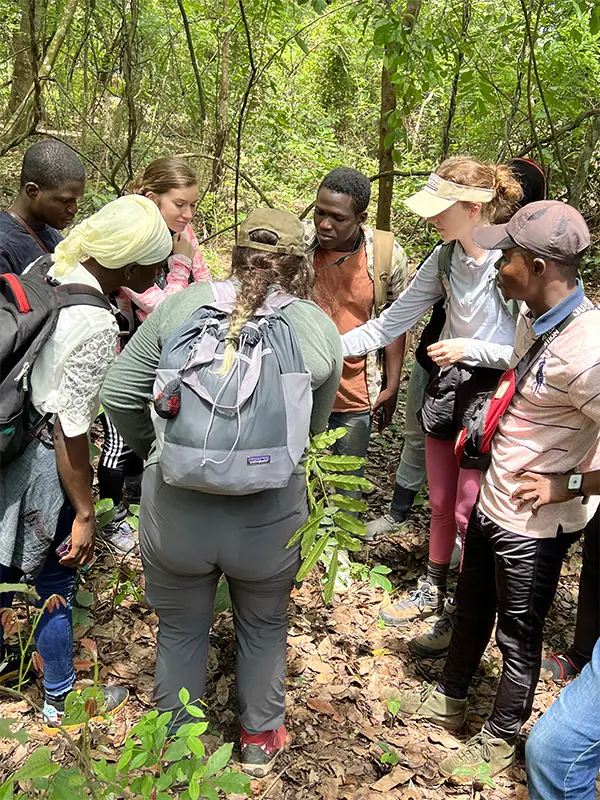Multicultural Team Researching in West Africa
Multicultural Team Researching in West Africa

In the Anthropocene, human activities can change the way species interact with each other and alter biodiversity. It is also important to train the next generation of scientists how to conduct complex research in the tropics where some of the highest environmental degradation is taking place and where US students often have limited opportunity to study. Associate Professor Orou Gaoue received funding from the National Science Foundation to develop a three-year International Research Experience for Students (IRES) to address these problems.
In summer 2022, Gaoue took the first five US students to Benin in West Africa to investigate the causes and demographic consequences of mutualism disruption by chronic human disturbance.
Five students from the University of Tennessee, Knoxville, were recruited and paired with five Benin students to form multicultural research teams. The US students also participated in peer-led learning activities on statistical data analysis, to teach to their peers in Benin, where the field component of this project was implemented. The first week in Benin included visiting labs at the universities in Cotonou and Parakou, meeting local mentors, and teaching statistical data analysis to Benin students. This opportunity for peer-led learning was one of the highlights of the program. These peer-learning sessions reinforced students’ knowledge of statistical data analysis and presented opportunities for students from Benin and the US to bond and discuss mutual interests.

Every year each multicultural team selected a research topic to work on from topics that are an integral part of Gaoue’s long-term research program in Benin. Students undertook field data collection in forest sites, half of which were perturbed by chronic human disturbance. Thus, students learned how to do research from project conception to data analysis and then communicated these results to mentors, faculty, and post-doctoral researchers from the University of Parakou.
Multicultural research teams collected demographic data on mahogany trees and their mutualistic weaver ants. Teams were focused on populations and behavior of the weaver ants, how harvesting by the Fulani people altered endophytes, and experimentally assessed the growth-defense hypothesis.
With opportunities to learn, teach peers, design research, collect data, and analyze data in Benin, UT students learned how to work in multicultural teams and how to navigate and conduct research in a foreign country—they also will be forever changed and enriched by this experience.